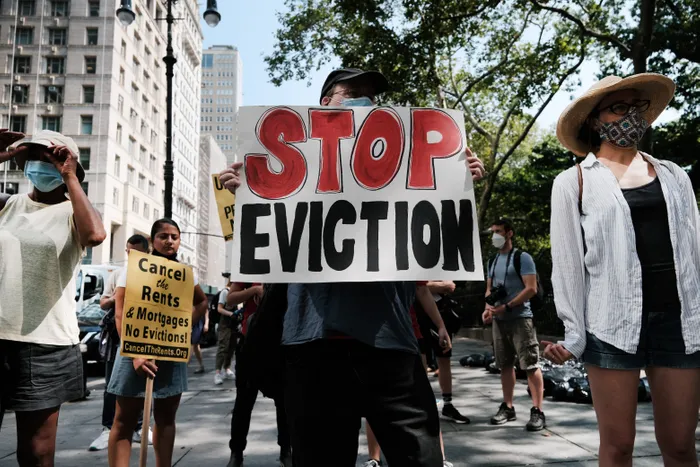Today, the majority of poor renting families in America spend over half of their income on housing, and at least one in four dedicates over 70 percent to paying the rent and keeping the lights on. That’s brutal.
Eviction is a brutal process for anyone who has had to suffer it. In one fell swoop, a tenant, who by definition, doesn’t own their place of residence, has everything ripped out from underneath of them. They come home to a locked door, usually losing their belongings in the process. The debt they once had as a renter begins to multiply as they scramble to secure funding for court appearances, late fees, and storage.
Covid-era moratoriums on evictions have been going away, putting more people at risk. According to the Aspen Institute, every time a minute passes in America, seven people get evicted. In a typical year, landlords file 3.6 million eviction cases. Not every case ends with someone being booted out of their residence, but it’s a major problem for those barely hanging on. A lot of people are one car repair, one illness, or any of a dozen instances between them and receiving an eviction notice.
Every state has a different process for landlords to evict someone. I wrote about how small changes in the process could help those in need back in December. One of the best sources for research on evictions is called Eviction Lab.
If you are financially able, here are some ways you can help those now at risk for eviction and potential homelessness:
- The Resident Relief Foundation – This nonprofit organization seeks to help residents stay in their homes during economic emergencies such as natural disasters, sickness, or job loss.
- Support Mutual Aid – A site that provides a list of organizations across several states in the U.S. that provide monetary assistance directly to those who need it. Ground Game LA runs it. I am going to write more about more about the Mutual Aid Hub soon. It’s a concept that I have been championing from the start on fixing the homeless issue!
- National Low Income Housing Coalition – has a database of City and State Funded Rental Housing Programs, which includ rental assistance programs.
